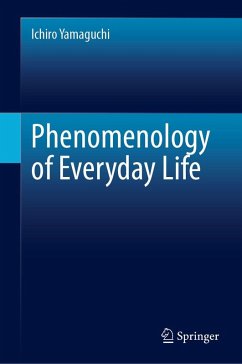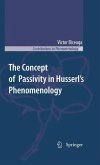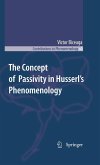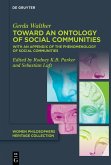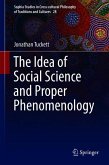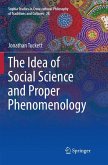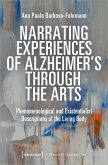This book is an introduction to phenomenology, with a focus on Edmund Husserl (1859-1938). Throughout the book, examples of concrete activities from everyday life (e.g., counting, perceiving, a change of feelings, communicating with others) are provided to elucidate the correlation of the act of consciousness (noesis) and the content of consciousness (noema). This is accomplished through an intentional analysis using the methods of phenomenological reduction and eidetic intuition. The correlation of consciousness is investigated in genetic phenomenology, in which the genesis of the correlation itself is questioned. The study is divided into two stages of development: passive genesis based on passive intentionality, which is not mediated by self-consciousness, and active genesis based on active intentionality, in which self-consciousness is presupposed. Through an analysis of passive genesis, two of the more difficult problems in phenomenological research- namely, the constitution of temporal flow and the constitution of intersubjectivity-are clarified. In the analysis of the mother-child relationship, in which self-consciousness is not mediated, the formation of the fundamental time flow through the "living co-present" experienced together by the child and mother is clarified by way of the fulfillment of instinctive intentionality. Furthermore, at the basis of intersubjectivity, "passive intersubjectivity" is phenomenologically founded, freed from the spell of solipsism that comes from presupposing self-consciousness. With regard to active genesis, social activities such as politics, economics, culture, and the sciences are developed in the realm of linguistic communication through the active synthesis of perception, language, and judgment. The intentional analysis also clarifies how, in the midst of these activities, one can realize the I-Thou relationship in which the I itself is forgotten and one becomes the thing itself. In this way, through the phenomenological descriptions based on genetic phenomenology, our everyday life that we started off with is brought to light as the overall structure of a concrete life-world starting from childhood to the creative social activities of adulthood.
Bitte wählen Sie Ihr Anliegen aus.
Rechnungen
Retourenschein anfordern
Bestellstatus
Storno

